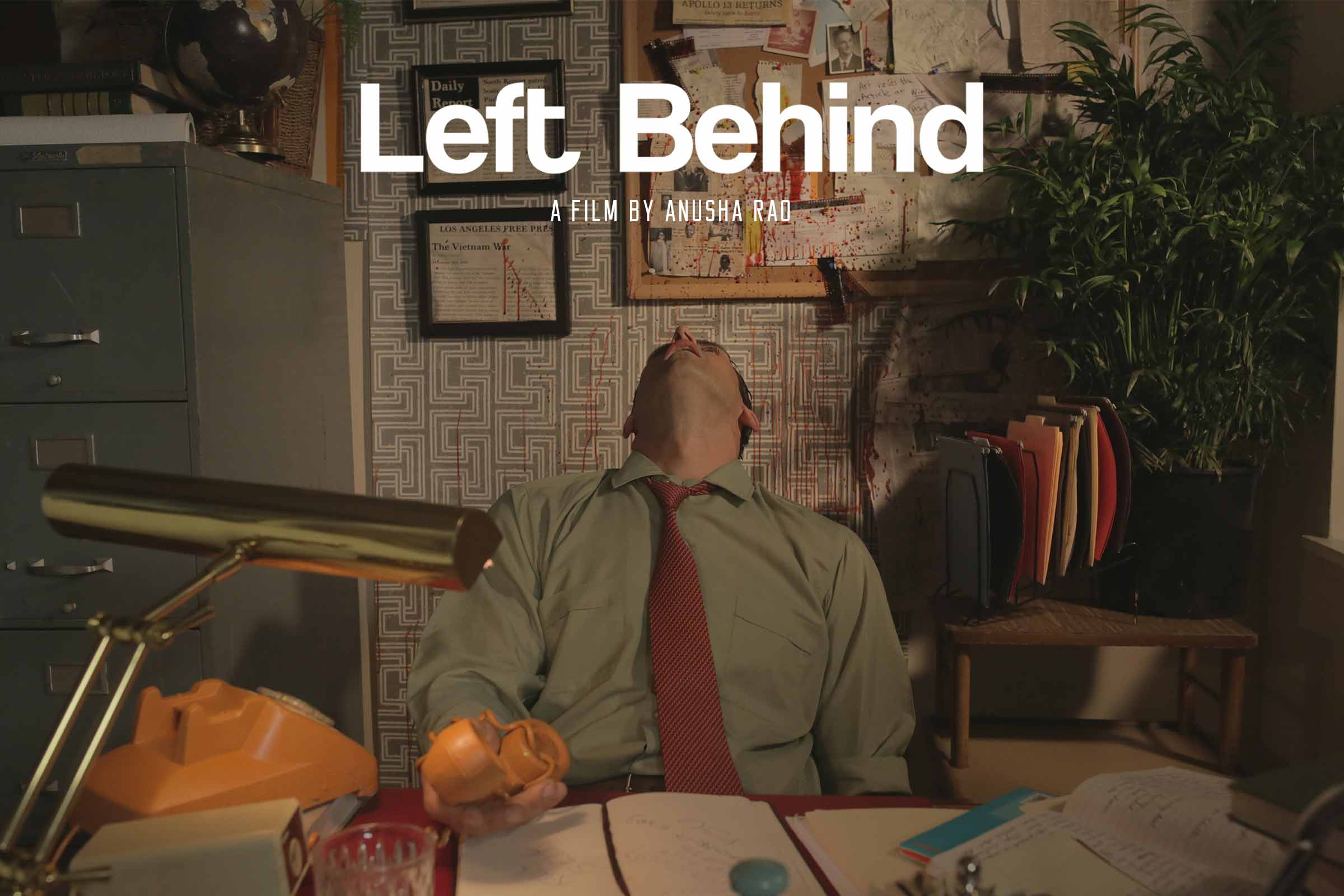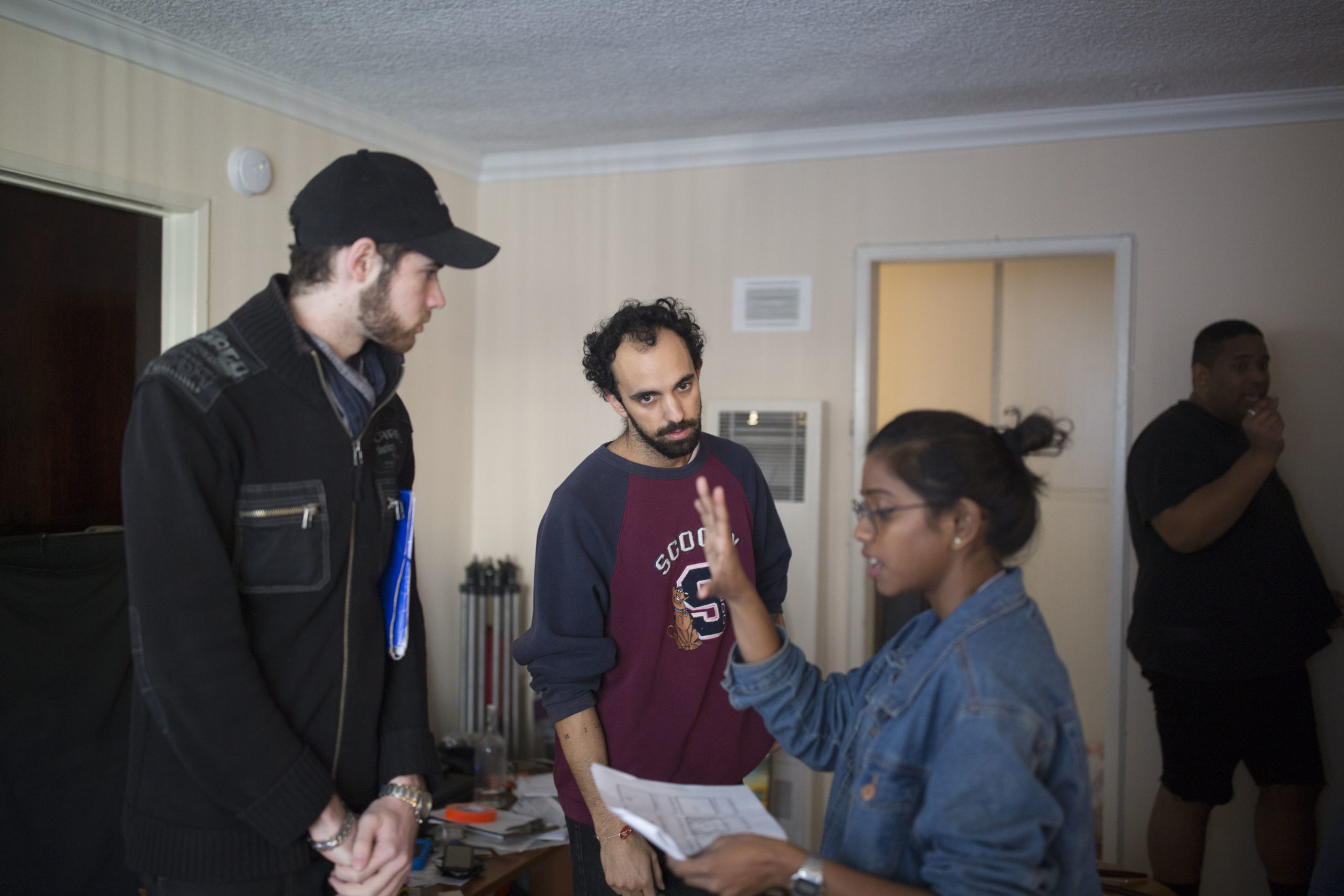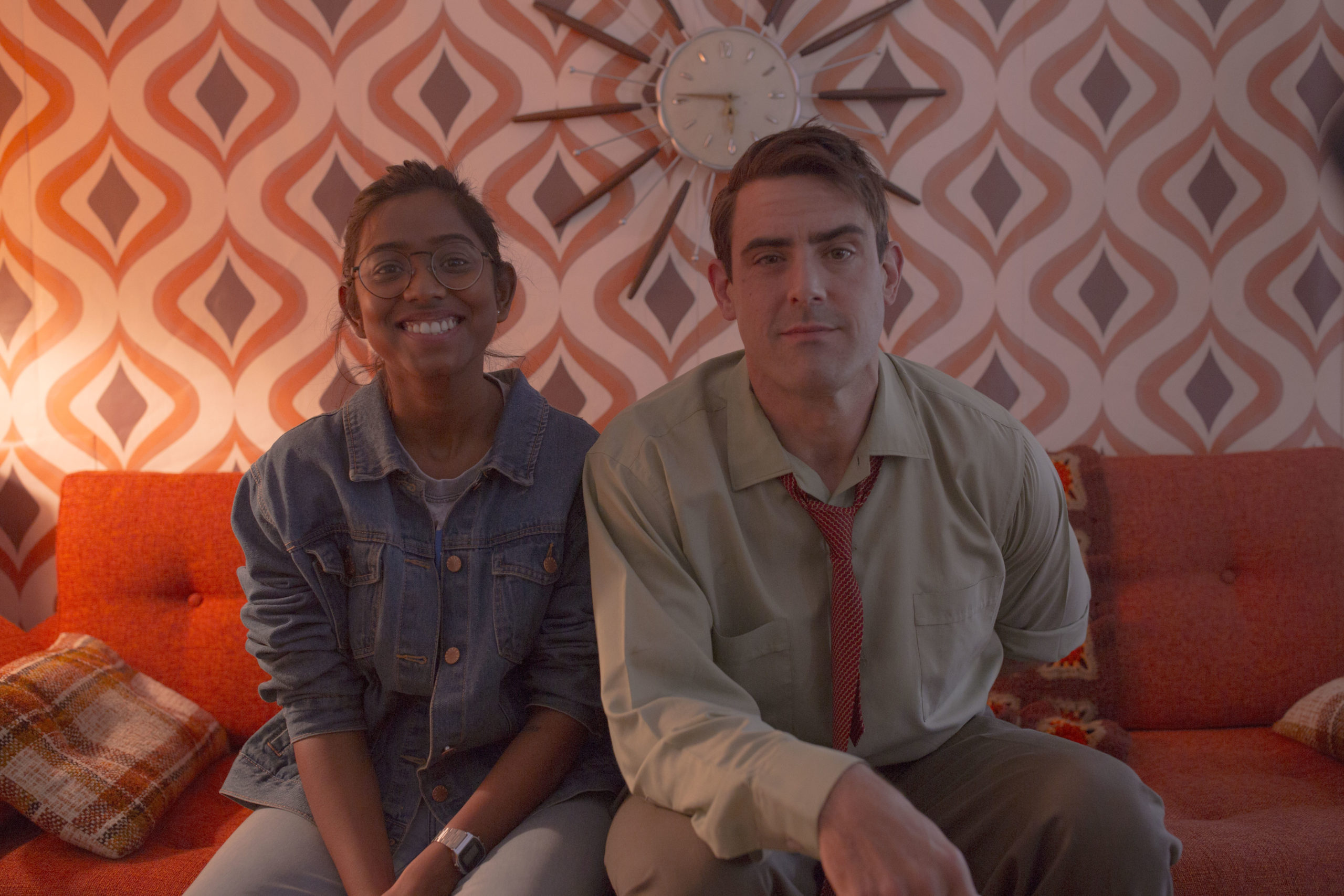 Left Behind shows the psychology of a a scarred journalist who has lived his life suppressing the usage of his left hand due to societal prohibition on "the usage of left hands". Because of constant suppression, the journalist's left hand finally revolts and then retaliates in a way that is unexpected.
Left Behind shows the psychology of a a scarred journalist who has lived his life suppressing the usage of his left hand due to societal prohibition on "the usage of left hands". Because of constant suppression, the journalist's left hand finally revolts and then retaliates in a way that is unexpected.
A short, simple tale, the story essentially points to suppressing one's own natural urges and of perils of choosing societal conformity over being a rebel. The film boasts of lovely colors, detailed frames, beautiful cinematography and a solid performance from the lead protagonist.
We spoke to Anusha Rao, the writer, director, producer on studying filmmaking and putting this film together and here are excerpts of her interview:
Hello Anusha! Where did you grow up? What attracted you to film-making?
Hi! I’m from Hyderabad, born and raised. I think the attraction subconsciously started during my childhood when my father would make my siblings and I watch Mahabharat on Doordarshan and Ben-Hur on our VCR every Sunday and my mother with subtle passion, would tell me the workings of Satyajit Ray and Guru Dutt. My father’s obsession with historic drama and my mom’s love for Bengali storytelling in specific influenced me in a way that films aren't any different from the lives that we live. Post college, my first job was in Marketing and International Distribution for Baahubali at a renowned production company in Hyderabad, Arka Mediaworks. The scale that the movie was built on was overwhelming. At that time my brain acted as a sponge, helping me extensively learn about the dynamics of executing a film. Filmmaking plays the role of a mirror, reflecting our hidden emotions onto ourselves. The idea that you can empathize with people from all walks of life is captivating to me, and that's what I mainly love about films.
 Could you tell us more about how you learnt film direction - either on your own, or if you went film school how did the experience benefit you.
Could you tell us more about how you learnt film direction - either on your own, or if you went film school how did the experience benefit you.
More than just doing a course, for me it was about getting out of my comfort zone and exploring cultures and diversities that were unfamiliar to me back in India. With this intention, I went to a film school in Los Angeles in 2017. We tend to keep our minds open and yet closed to a few aspects. Apart from studying various departments of film, I majored in screenwriting and direction. What I benefitted from was that I started looking at film in a particular way. Growing up, I remember getting intrigued by the psychological motives of characters and the subtext which made me consciously think about their actions for days after. The benefit of going to a film school made me look at films as not just films but as a well bound script that comes with a value for sound, the beauty of colors and a tone apt for the story.
What 3 advice will you give to aspiring filmmakers in this industry? Also should they consider taking a formal course?
1) My first advice is make sure this field is instinctive for you, don’t get into it to escape math or science.
2) When you are making your own film, get a thoughtful team that fits like a glove; a team that you can comfortably share creative debates with. You don't have to always work with friends or people you know because working with strangers is an experience in itself. It’s always good to hire people who have more experience than you, helping you understand your ego and your behavior around them.
3) If you are into writing, I believe that a writer doesn't have to go through what he’s writing about. A writer’s job is to also write about things he never went through with similar promise. Understanding strangers psychologically without having ever met them is something to invest in.
Yes, I do advise taking a formal course especially if you feel you have the aptitude or knack for filmmaking. However, the instinctive decision skills you need to make on set have nothing to do with a course in film and to do with a sheer common sense. There have been so many filmmakers back in the day with no formal training and yet happened to make such classics in history whose techniques are taught in this day and age.
 Who are your influences as filmmakers?
Who are your influences as filmmakers?
I have an admiration for the way filmmakers visualize the film before it is shot and the way they establish emotions of their characters. Growing up, what made me admire Mani Ratnam was his knack for showcasing comfortable relationships and his strong and opinionated characters, while decidedly never shooting outside India. From Satyajit Ray’s idea of symbolism, to Alex Garland and Spike Jonze’s principle of parallelly running realism and science is interesting to me. I believe you can look up to filmmakers for their stubbornness in sticking to their ideology, while we work on building our own and that is the reason behind my admiration more than influence.
Anusha is currently based out of Hyderabad and working on a TV series which is a psychological murder mystery and simultaneously writing my feature script that is a dystopian drama to direct.
Key Credits:
Written, Directed and Produced by Anusha Rao
Cinematography by Ricardo Pomares
Production Design by Karol N Venegas
Starring Jimmy McCammon
Edited by Landon Moss
Music Composition by Harry Hutchins






